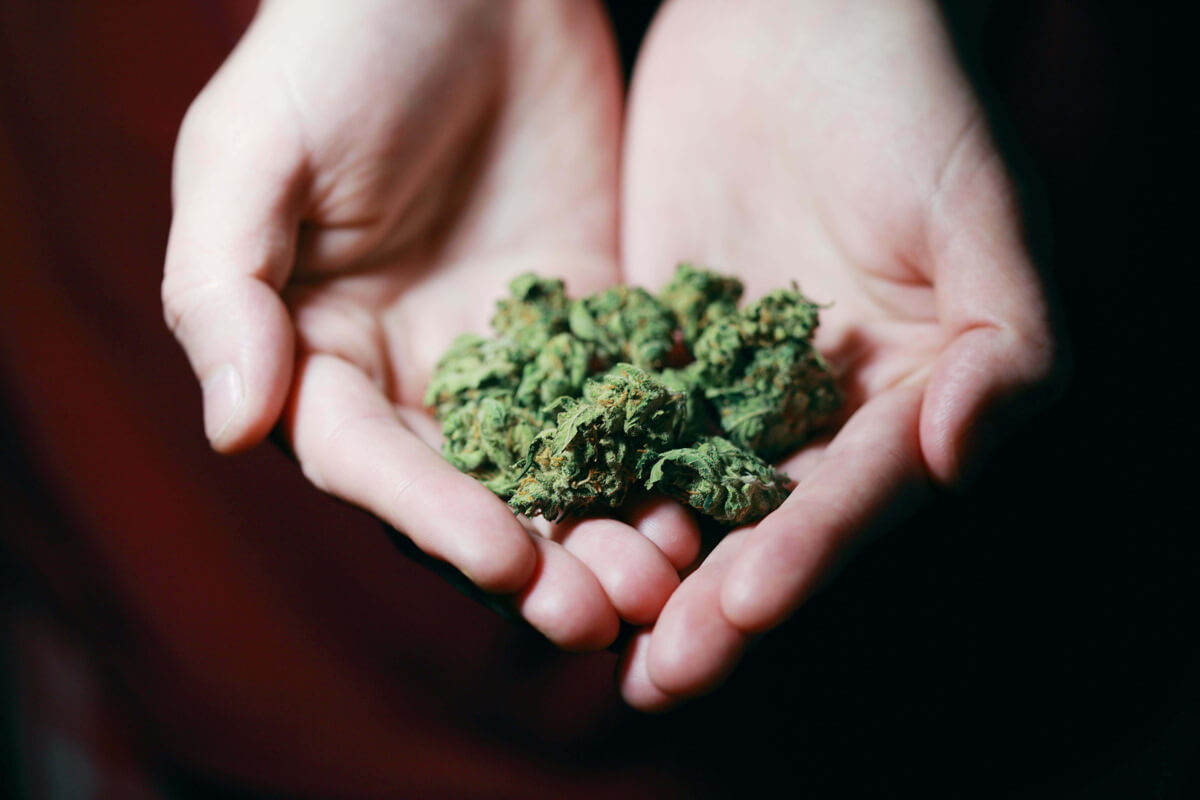How Long Does Weed Stay in Your System?
Posted by DaySavers Team on Aug 12th 2024
Have you ever wondered, "How long does weed stay in your system?".
Whether you're preparing for a job interview, concerned about a random drug test, or simply curious about how cannabis interacts with your body, it's a question many cannabis enthusiasts ask. Knowing how long THC lingers in your system is crucial for various reasons, from employment and legal matters to overall health.
In this article, we'll dive into the science behind THC retention, explore the different types of drug tests, and share tips for speeding up the detox process. By the end, you'll have a clearer picture of what affects how long weed stays in your system and how to manage it effectively.

Breakdown of the Science Behind Weed Staying in Your System
Brief Breakdown of the ScienceTo get started in learning the science behind how THC works in our bodies, it's important to take into account how several factors influence how long weed stays in your system. Here's a closer look at the main ones:
Frequency and Duration of Use: Regular smokers retain THC longer than occasional users, according to Marilyn A. Huestis in her paper titled "Human Cannabinoid Pharmacokinetics." For someone who smokes daily, THC can linger in the body for weeks. In contrast, an occasional user might eliminate it within a few days.
Genetics: Your metabolism rate and genetic makeup play a role in how quickly THC is processed and eliminated from your body, according to Priyamvada Sharma, Ph.D. Some people naturally metabolize THC faster due to their genetic profile due to factors including higher metabolisms.
Body Mass Index (BMI): THC is well known to be stored in fat cells, so individuals with higher body fat may retain THC longer than those with lower body fat. This is because THC is lipophilic, meaning it binds to fat molecules.
The Method of Consumption: The way you consume cannabis—whether through smoking pre rolled cones or tubes, vaping, or edibles—affects how THC is absorbed and metabolized. Smoking and vaping deliver THC directly to the bloodstream, leading to quicker but shorter-lived effects, whereas edibles take longer to metabolize but stay in the system longer.
Weed, Urine, Saliva, Blood, and Hair Tests, How Long Can they Check?

Four common tests are used to find if an individual has ingested THC. Each one of these tests has different characteristics, so it's important to understand the differences between them.
Urine Tests: Urine tests are the most common method used for employment drug screenings. These tests detect THC metabolites rather than THC itself, which are stored in the body’s fat cells and released slowly over time. For heavy users, THC metabolites can be detected for up to 30 days, while occasional users might test positive for 3-10 days.
Saliva Tests: Saliva tests detect recent cannabis use, typically within the last 24-72 hours. These tests are less invasive and are often used by law enforcement for roadside checks. Saliva tests are convenient and quick, making them a popular choice for immediate detection.
Blood Tests: Blood tests measure active THC in the bloodstream. This method is used to detect recent consumption, as THC is quickly metabolized and eliminated from the blood. THC can be detected for up to 36 hours for occasional users, whereas it may linger longer in heavy users.
Hair Tests: Hair tests can detect cannabis use for up to 90 days, making them a reliable method for long-term detection. However, they are less common due to their higher cost and the longer time required to process the results. Despite this, hair tests are highly accurate for determining historical drug use.
Understanding the different types of drug tests and their detection windows is crucial for anyone needing to navigate cannabis usage and testing. Each method—urine, saliva, blood, and hair—has its strengths and limitations, affecting how long THC can be detected in your system. With this knowledge, you can better prepare for potential screenings. Next, we'll explore practical tips for speeding up the detox process and getting weed out of your system faster.
Tips for Getting Weed Out of Your System Faster
Hydration: Drinking plenty of water can help flush out toxins. Staying well-hydrated aids your body in metabolizing and eliminating THC more efficiently.
Exercise: Regular physical activity is a powerful tool in your detox arsenal. It can help burn fat where THC is stored, giving you a sense of control over the process. Since THC metabolites are stored in fat cells, exercises like cardio and strength training can reduce body fat and accelerate detoxification, empowering you to take charge of your health.
Healthy Diet: It may be hard with the munchies, but a balanced diet can support overall metabolism. Focus on nutrient-rich foods, including fruits, vegetables, lean proteins, and whole grains, to keep your metabolism running smoothly and assist your body in breaking down and expelling THC.
Detox Products: While many detox kits are available on the market, it's important to approach them with caution. The effectiveness of these products varies, and some may not be reliable. It's always best to consult a healthcare provider before using any detoxification products.
Natural Detox Time: Sometimes, the best method is simply giving it time. Allowing your body to metabolize and eliminate THC naturally is the safest and most effective approach. Patience and healthy living can be your best allies in this process.
Although implementing these tips can help expedite getting weed out of your system, it's better to plan around drug tests. If you know you have an upcoming test, consider taking a tolerance break from cannabis to better your chances, and use these tips as a supplement.

How Long Does Weed Stay in Your System? Well, it Depends.
Fully understanding how long weed stays in your system is crucial for personal and professional reasons. Key factors influencing THC retention include the frequency and duration of use, genetics, BMI, and the method of consumption.
Different testing methods, such as urine, saliva, blood, and hair tests, have varying detection windows and purposes. Staying hydrated, exercising regularly, maintaining a healthy diet, and allowing natural detox time are effective strategies to expedite the detox process.
Recognizing the importance of this knowledge can help you make informed decisions and better manage your cannabis consumption. For more insights into cannabis and to explore our range of products, including pre-rolled cones, blunts, and smoking accessories, visit our shop!
Understanding the Ins-and-Outs of Weed Testing



